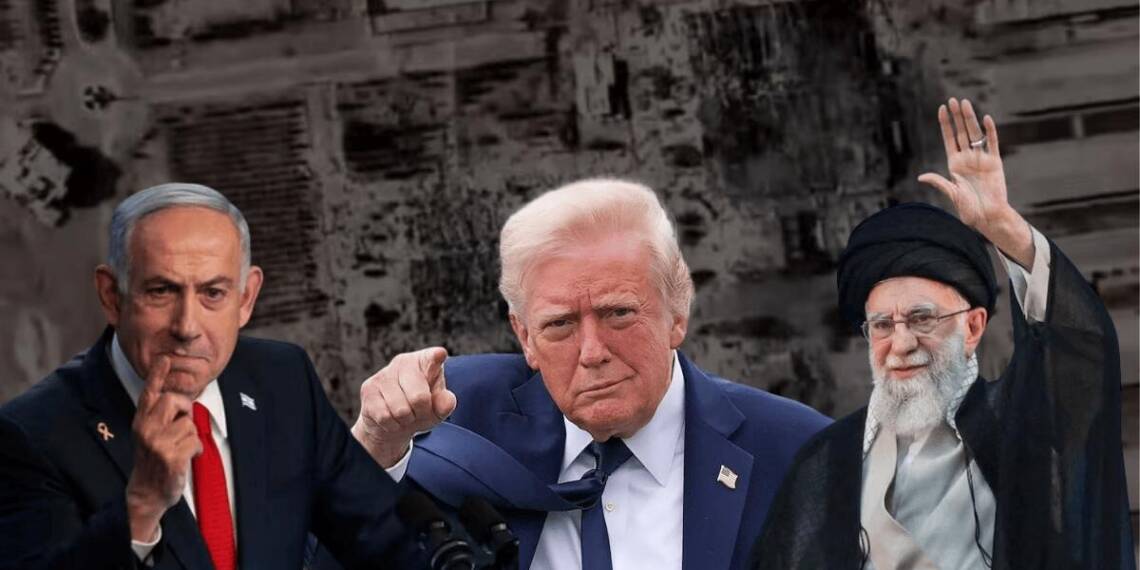U.S. President Donald Trump has escalated tensions in West Asia with unilateral airstrikes targeting Iran’s nuclear facilities at Natanz, Isfahan, and the heavily fortified Fordow complex. Deploying stealth bombers and massive bunker-busting munitions, the United States has launched a dangerous offensive—without a clear roadmap, multilateral backing, or an exit strategy.
This pattern is all too familiar: Trump takes bold action, but offers no diplomatic follow-up. There are no negotiations in motion, no alliance-based framework to contain the fallout, and no clarity on America’s long-term goals. In doing so, Trump hasn’t just raised the risk of full-scale war—he’s left the region teetering on the edge without a safety net.
Iran has already condemned the strikes and could retaliate directly or through regional proxies. Without checks or diplomatic channels, the likelihood of further escalation is high—and the absence of international mediation makes de-escalation increasingly unlikely.
For India, the implications of this crisis are immediate and serious. The Strait of Hormuz, a strategic chokepoint through which a majority of India’s oil imports flow, could become the first casualty of rising hostilities. Any disruption would send global oil prices soaring, triggering inflation and economic instability back home. India’s reliance on affordable energy imports from the Gulf makes this an acute vulnerability.
But oil is only part of the story. With millions of Indians working across Gulf nations, a wider war could force mass evacuations and cut into one of India’s most stable sources of foreign exchange—remittances. Key strategic projects like Chabahar Port, critical for India’s access to Central Asia, would also face jeopardy.
Diplomatically, India now faces a tightrope walk. While it maintains strong relations with the United States and Israel, it has longstanding civilizational, economic, and strategic ties with Iran. Trump’s go-it-alone military action forces India into a reactive position—forced to manage the fallout of a conflict it did not trigger but cannot afford to ignore.
Undermining Global Institutions: A Dangerous Precedent
Trump’s strikes weren’t just militarily provocative—they were a direct challenge to international norms. The United Nations Security Council (UNSC), which is tasked with maintaining global peace and security, has been bypassed entirely. By attacking a sovereign nation’s infrastructure without UN approval or international consensus, Trump has once again exposed the UNSC’s inability—or unwillingness—to act when great powers defy the rules.
Meanwhile, the International Atomic Energy Agency (IAEA), which oversees nuclear compliance under the Nuclear Non-Proliferation Treaty (NPT), has remained conspicuously silent. The agency has offered no immediate assessment of damage or clarity on the status of Iran’s nuclear materials. Its lack of urgency calls into question the IAEA’s effectiveness as a neutral and reliable watchdog in times of crisis.
In the wake of Israel’s coordinated attacks and the U.S. airstrikes, Iran is now openly considering withdrawing from the NPT—a treaty it joined in 1970 as a non-nuclear state. Tehran argues that its peaceful nuclear program, developed under international oversight, has now become a target despite complying with NPT norms.
If Iran walks out of the NPT, it would no longer be bound by obligations for nuclear transparency or IAEA inspections. This would significantly erode the global nuclear order and could trigger a regional arms race, especially in the Middle East. Iran’s decision may embolden other countries to reevaluate their nuclear posture, undermining a treaty already criticized by non-signatory states like India, Pakistan, and Israel for being structurally unequal.
While Tehran insists it has no intention to build nuclear weapons and cites religious edicts against WMDs, its threat to quit the treaty highlights how quickly global non-proliferation architecture can be weakened when major powers bypass diplomacy and rely on brute force.
Trump’s decision to bomb Iran’s nuclear sites without an exit plan, international support, or diplomatic groundwork is not just reckless—it’s a dangerous precedent that weakens global institutions, destabilizes regional balances, and puts non-combatant nations like India at severe risk. If Iran retaliates militarily or withdraws from the NPT, the world could be staring at the collapse of nuclear non-proliferation as we know it.
The silence of the UNSC, the inaction of the IAEA, and the recklessness of Trump’s unilateral war strategy raise a critical question: Who is accountable when global rules are ignored by those who helped create them?








